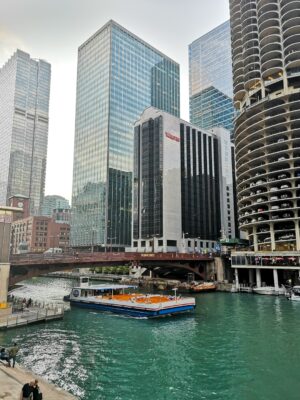The Federal Communications Commission (FCC) oversees the regulation of unwanted robocalls across the nation and specifically in Illinois. Affected residents in Illinois can seek specialized legal assistance from proficient robocall lawyers and attorneys who are well-versed in the Telephone Consumer Protection Act (TCPA) and other laws regulating robocalls. These legal experts, often associated with prominent robocall law firms in Illinois, provide dedicated representation to individuals impacted by illegal robocalls, guiding them on their rights and pursuing compensation or relief. The FCC's guidelines aim to curb the unauthorized use of automated dialing systems and voice messages, aligning with the efforts of Illinois's robocall lawyers and attorneys to defend consumers against these nuisance calls through legal action and advocacy for stronger consumer protections. In Illinois, residents experiencing an influx of robocalls can find robust support from local robocall law firms and lawyers, ensuring they have access to skilled legal representation to address the issue effectively. Engaging a robocall lawyer or attorney in Illinois is a key step for those seeking redressal or aiming to prevent future unwanted calls. These legal professionals are adept at navigating complex telecommunications laws and stand as a shield against invasive automated calls, protecting consumer privacy and well-being.
The scourge of unwanted robocalls has become a pervasive issue across the nation, with Illinois residents feeling the intrusive impact. As these automated calls continue to proliferate, understanding the regulatory framework and available legal resources is paramount for consumers. This article delves into the pivotal role of the Federal Communications Commission (FCC) in combating robocalls within Illinois, exploring its jurisdictional scope and robust anti-robocall initiatives. It also sheds light on how dedicated robocall lawyers and attorneys in Illinois are providing crucial support to individuals navigating the complexities of these nuisance calls. By examining the legal landscape and available law firms, consumers can better shield themselves from the illegal practices of robocallers and seek appropriate redress.
Understanding the FCC's Jurisdiction over Robocalls in Illinois

The Federal Communications Commission (FCC) plays a pivotal role in regulating robocalls across the United States, including Illinois. As an independent agency, the FCC has jurisdiction over interstate and international communications by television, radio, and wire, including the systems utilized for robocalls. In Illinois, residents who are plagued by unwanted robocalls can seek recourse through a network of professional robocall lawyers and attorneys who specialize in this area of law. These legal experts, often associated with reputable robocall law firms across Illinois, are well-versed in the Telephone Consumer Protection Act (TCPA) and other relevant laws that govern robocalls. They provide representation to individuals harmed by illegal robocalls, helping them to navigate their rights and seek compensation or relief from the intrusive calls. The FCC’s regulations set strict guidelines on automated telephone dialing systems and artificial or prerecorded voice messages, aiming to protect consumers from unauthorized or malicious use of such technology. Through enforcement actions, policy initiatives, and consumer education, the FCC works in tandem with local robocall lawyers and attorneys in Illinois to safeguard the state’s residents against the nuisance of illegal robocalls.
The Federal Communication Commission (FCC) and Its Anti-Robocall Initiatives

The Federal Communications Commission (FCC) serves as a pivotal regulatory body in the United States, with a mandate that extends to safeguarding consumers from unwanted robocalls. Recognizing the pervasive nuisance and potential threat of robocalls, the FCC has launched comprehensive initiatives aimed at mitigating their impact. These initiatives encompass advanced call-blocking technologies, collaboration with telecom providers, and policy measures designed to enhance transparency and accountability within the telecommunications industry. As part of these efforts, the FCC has been proactive in updating call authentication frameworks, ensuring service providers can better identify and filter out fraudulent calls, a critical step in protecting consumers from scams and deceptive practices.
For individuals affected by robocalls in Illinois, the FCC’s actions translate to tangible support. Should residents receive unsolicited automated calls, they are encouraged to report these incidents to both the FCC and their local service providers. Additionally, the role of robocall lawyers and attorneys in Illinois becomes increasingly significant. Robocall law firms and lawyers in Illinois are well-versed in navigating the complexities of telecommunications law and can provide legal recourse for those harmed by illegal robocalls. These legal professionals not only assist victims in understanding their rights but also work tirelessly to hold violators accountable and advocate for stronger protections against these persistent disturbances.
How Robocall Lawyers and Attorneys in Illinois Are Aiding Consumers

Robocall lawyers and attorneys in Illinois play a pivotal role in safeguarding consumers from unwanted automated calls. These legal experts specialize in understanding the intricate laws governing robocalls at both state and federal levels, including the Telephone Consumer Protection Act (TCPA). Robocall law firms Illinois are equipped with the necessary expertise to navigate these complex regulations and offer robust representation to individuals who have been subjected to illegal robocalls. By providing clear legal advice and aggressive advocacy, these attorneys help clients understand their rights and seek appropriate compensation for the invasive and often deceptive practices employed by robocallers. Their efforts not only serve as a deterrent to potential violators but also educate consumers on how to recognize and report these nuisances. As a result, residents of Illinois have become more empowered to combat robocalls, thanks to the guidance and legal support offered by local robocall attorneys Illinois.
Furthermore, the collaboration between robocall law firms Illinois and consumer protection agencies has led to significant advancements in holding offending parties accountable. These law firms often work in tandem with the Federal Communications Commission (FCC) to ensure that robocall violations are addressed effectively. Through class action lawsuits and individual claims, they have successfully forced robocallers to comply with legal standards or face substantial fines. This partnership underscores the importance of legal intervention in curbing the menace of illegal robocalls and highlights the critical role that robocall lawyers Illinois continue to play in protecting consumer privacy and security.
Navigating Legal Recourse with Robocall Law Firms in Illinois

When confronted with the nuisance and illegality of robocalls in Illinois, residents have legal recourse through dedicated robocall lawyers and attorneys. These legal professionals specialize in the intricate laws governing telemarketing and automated calls, providing expertise in navigating the complexities of the Telephone Consumer Protection Act (TCPA) and other relevant regulations. Robocall law firms in Illinois are equipped to handle cases against individuals or companies that violate these laws by sending unsolicited robocalls, which can include everything from harassment to scams. These firms offer personalized representation to victims of such calls, working tirelessly to ensure that their clients’ rights are upheld and that perpetrators are held accountable. By engaging a robocall attorney in Illinois, affected parties can seek compensation for damages and deter future violations. These legal experts not only provide a voice for those burdened by unwanted automated calls but also advocate for stronger enforcement of the laws designed to protect consumer privacy and well-being.






